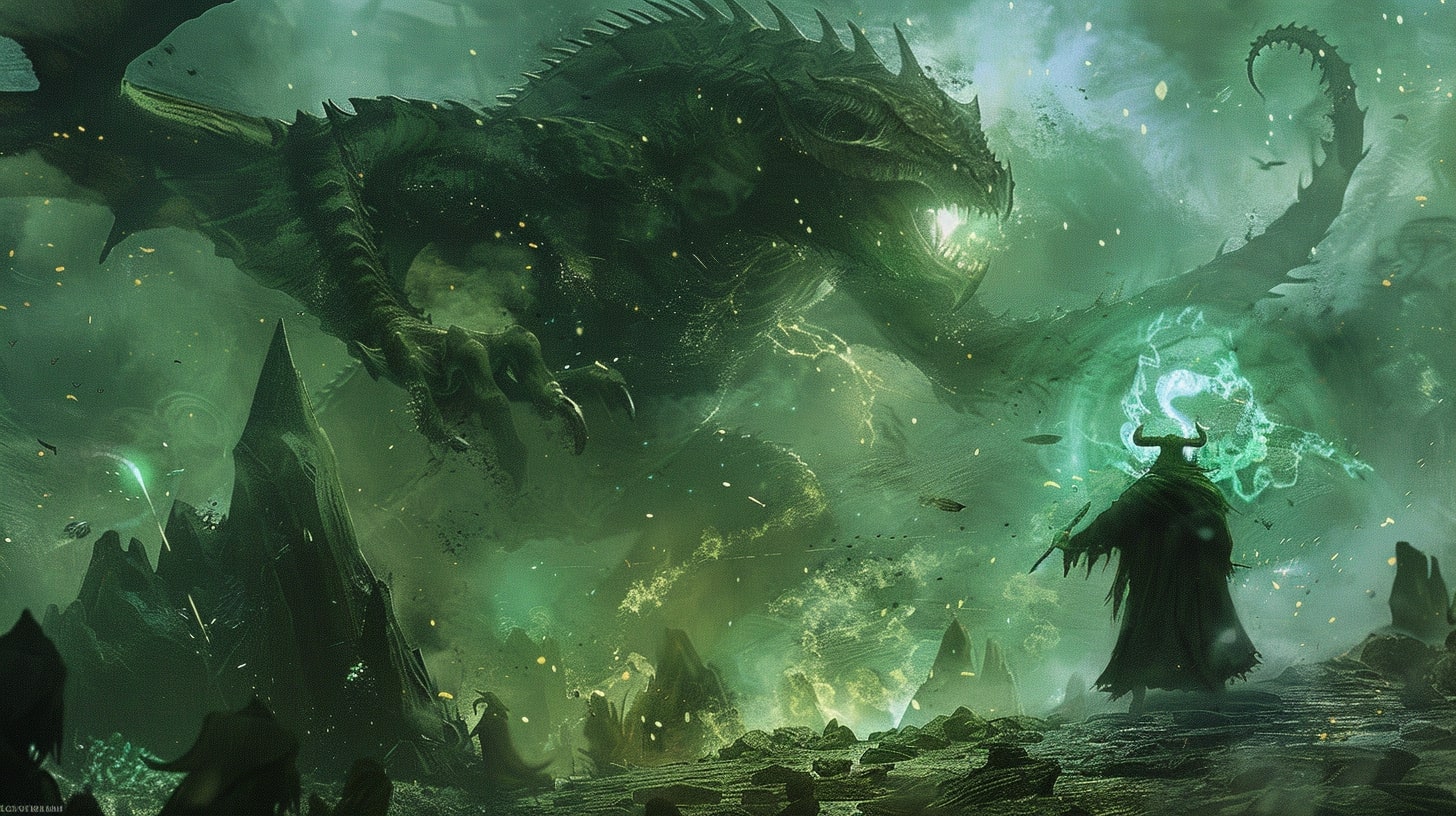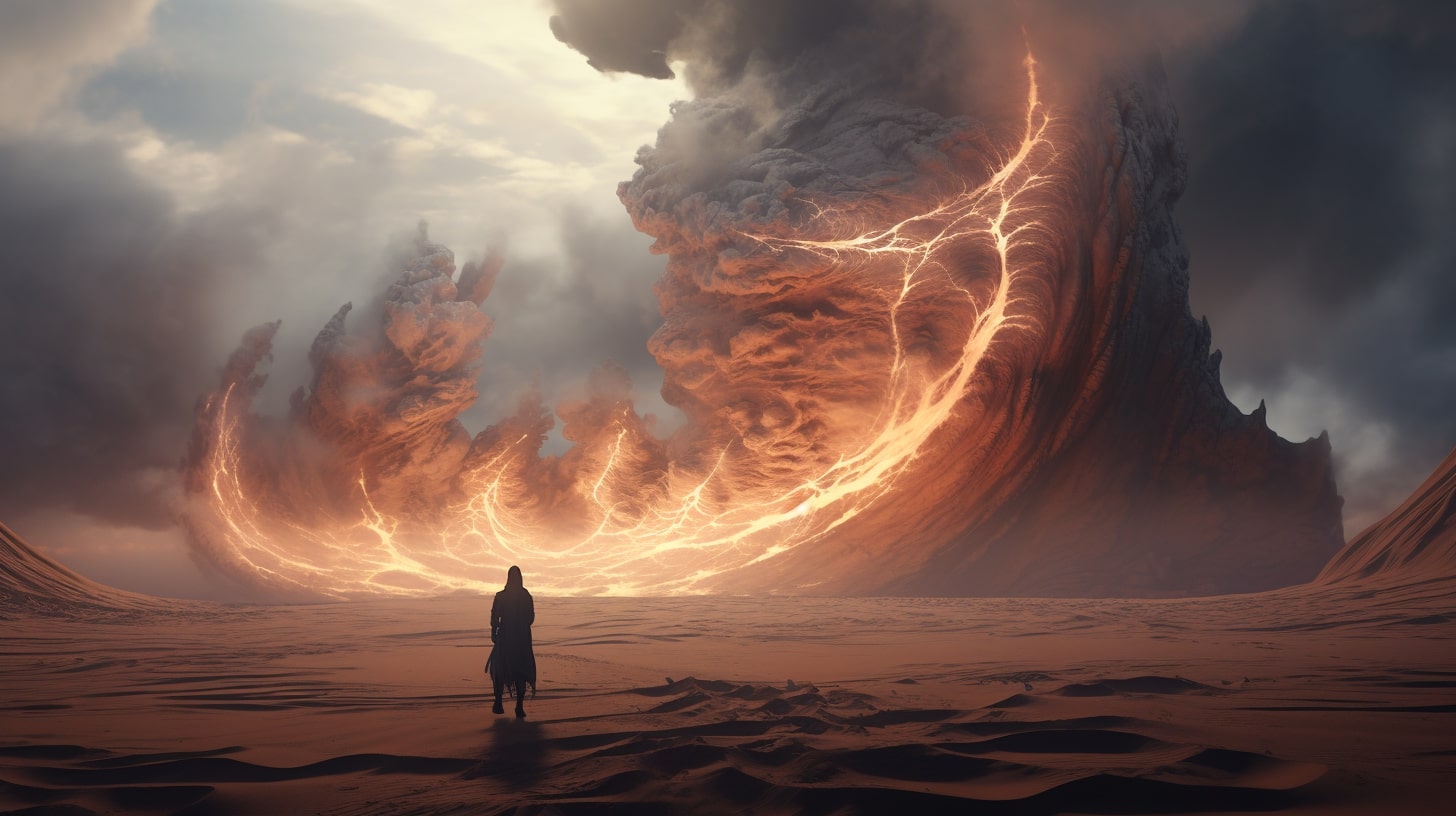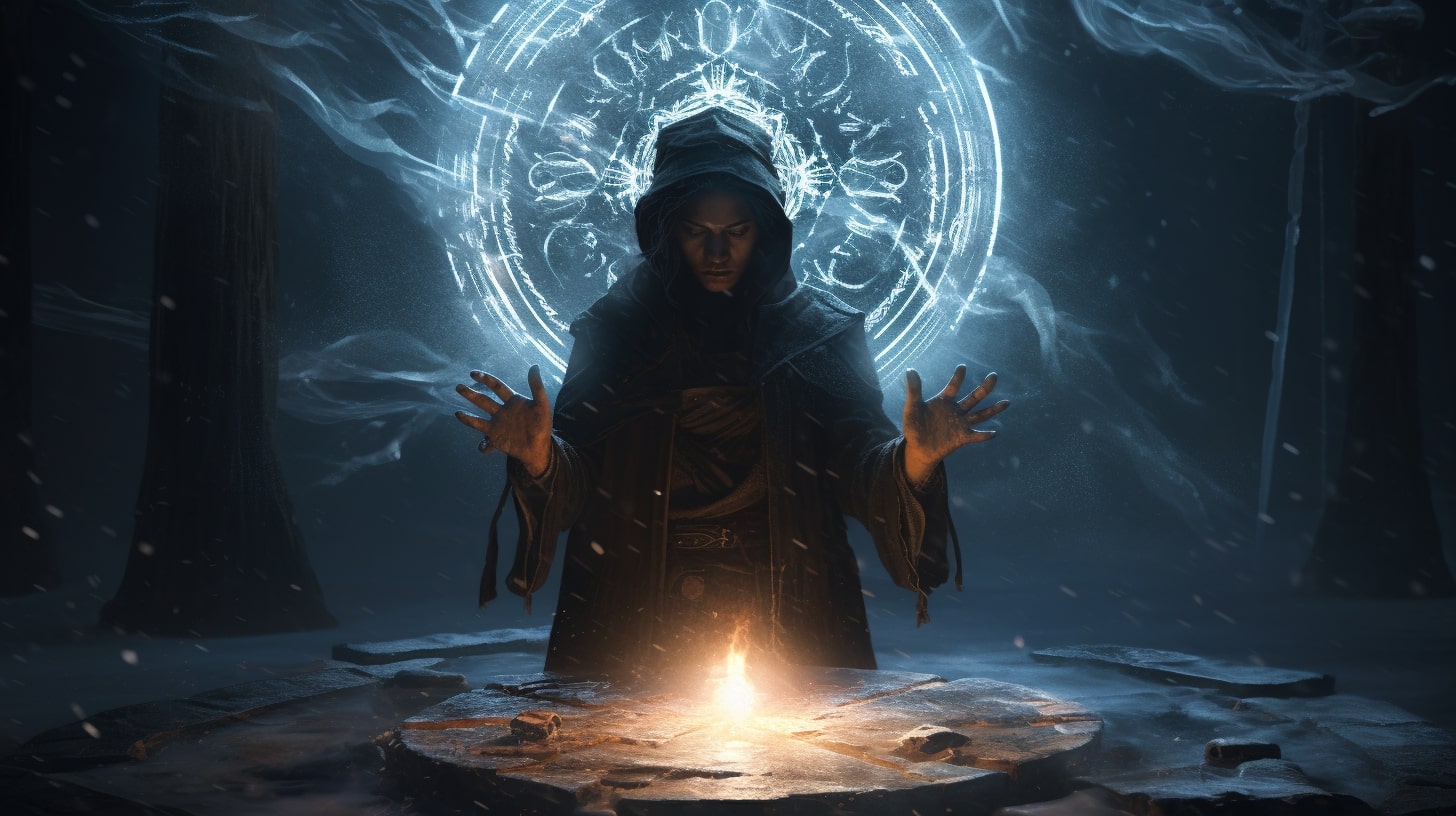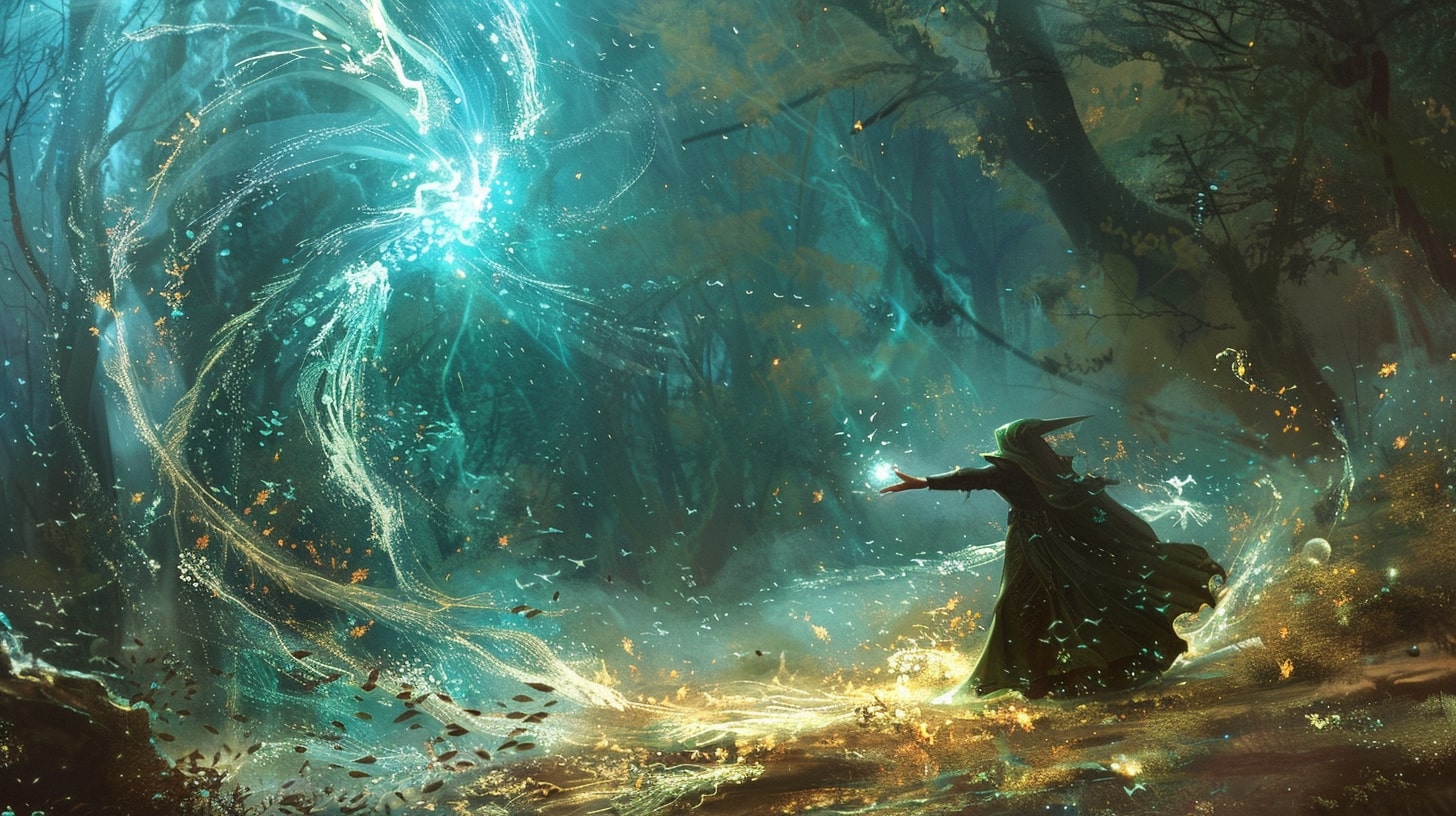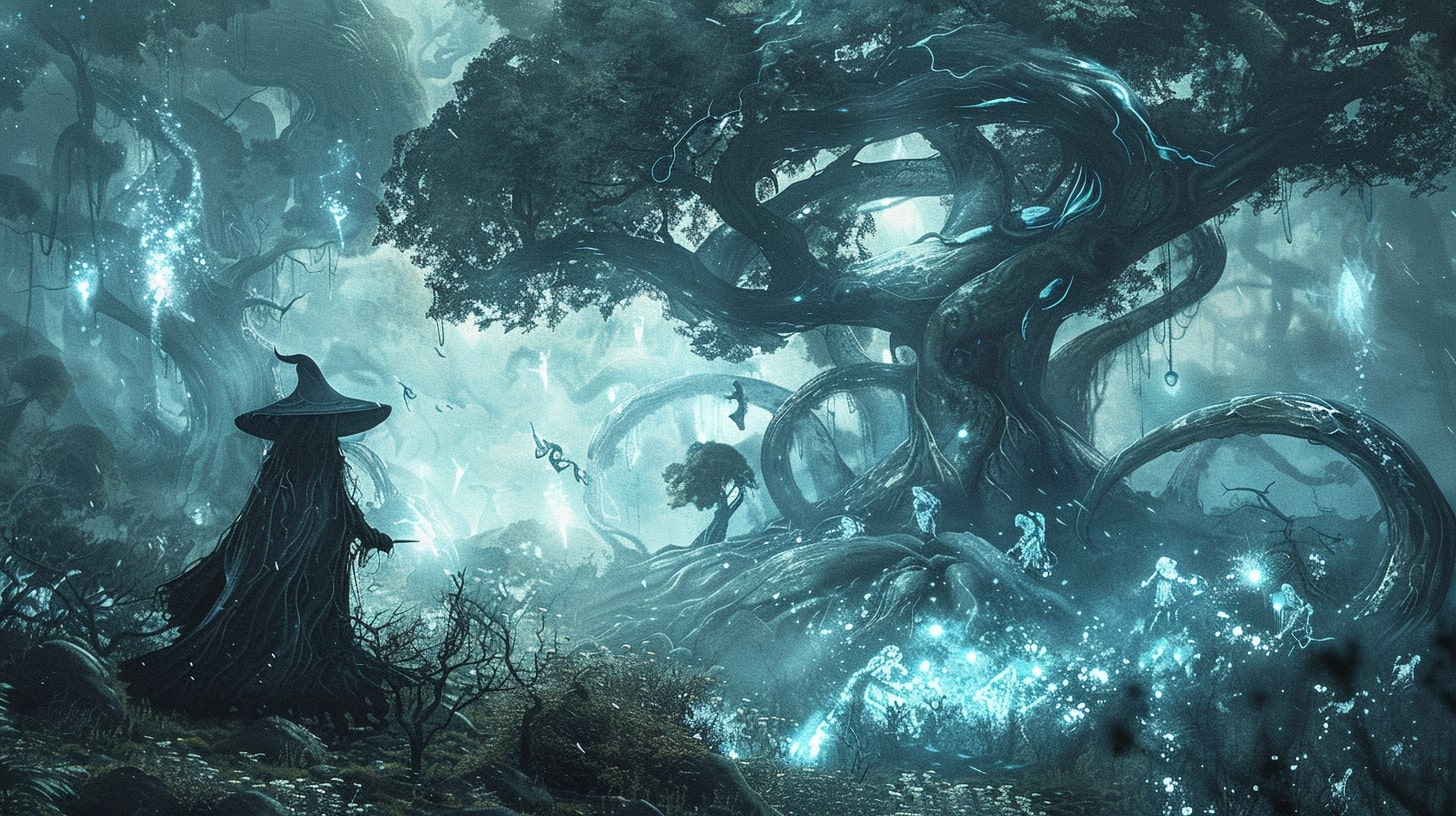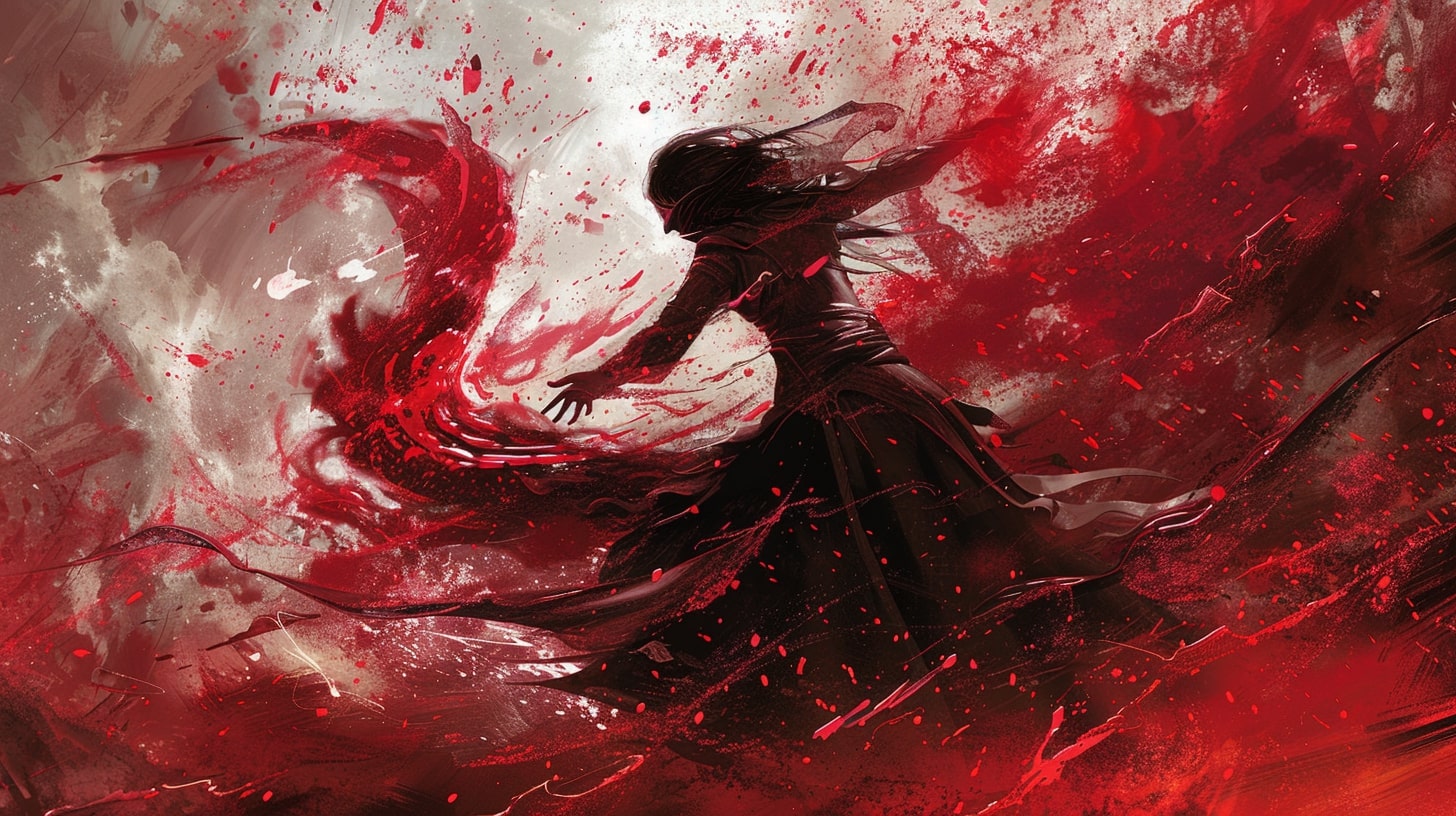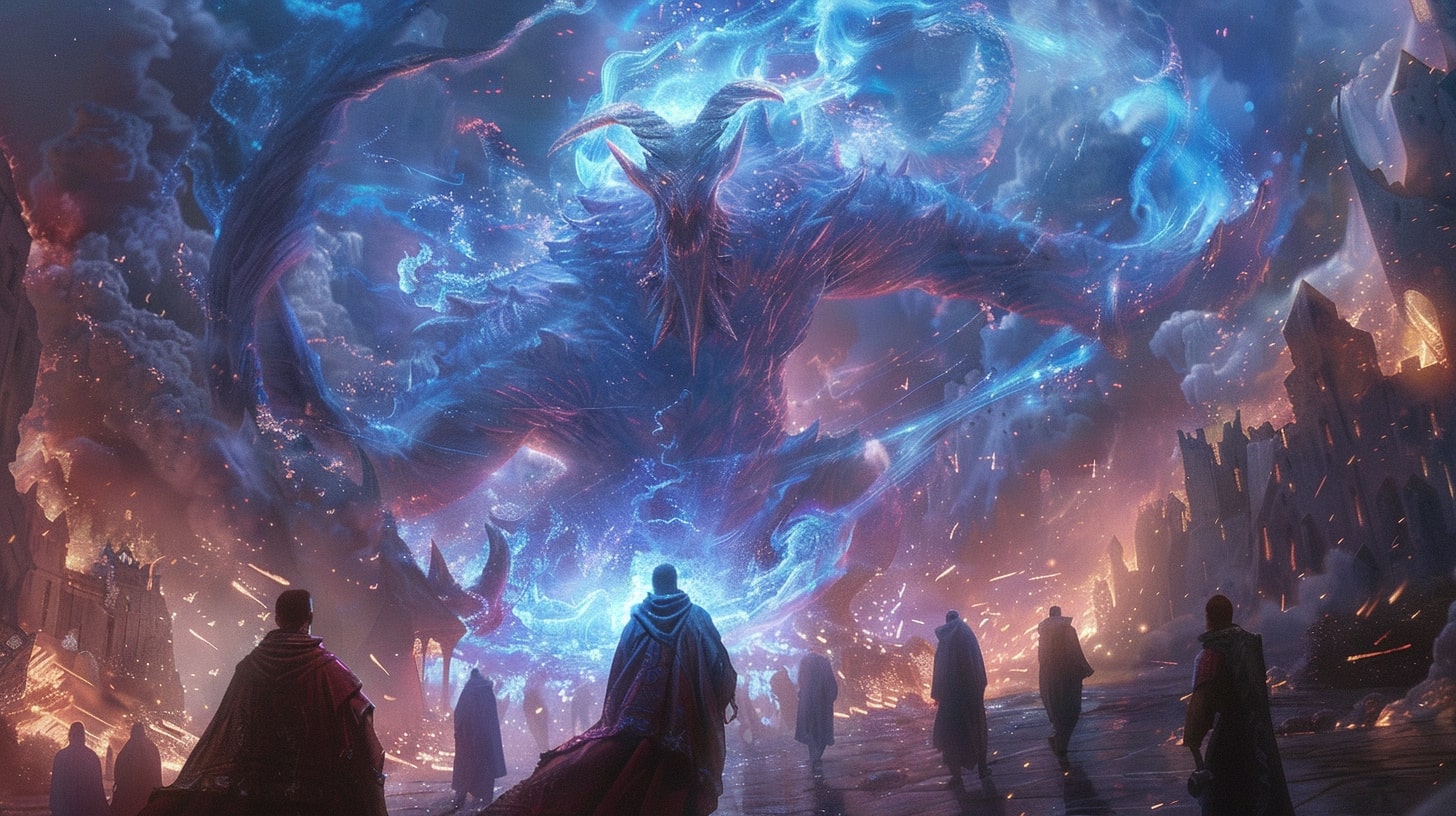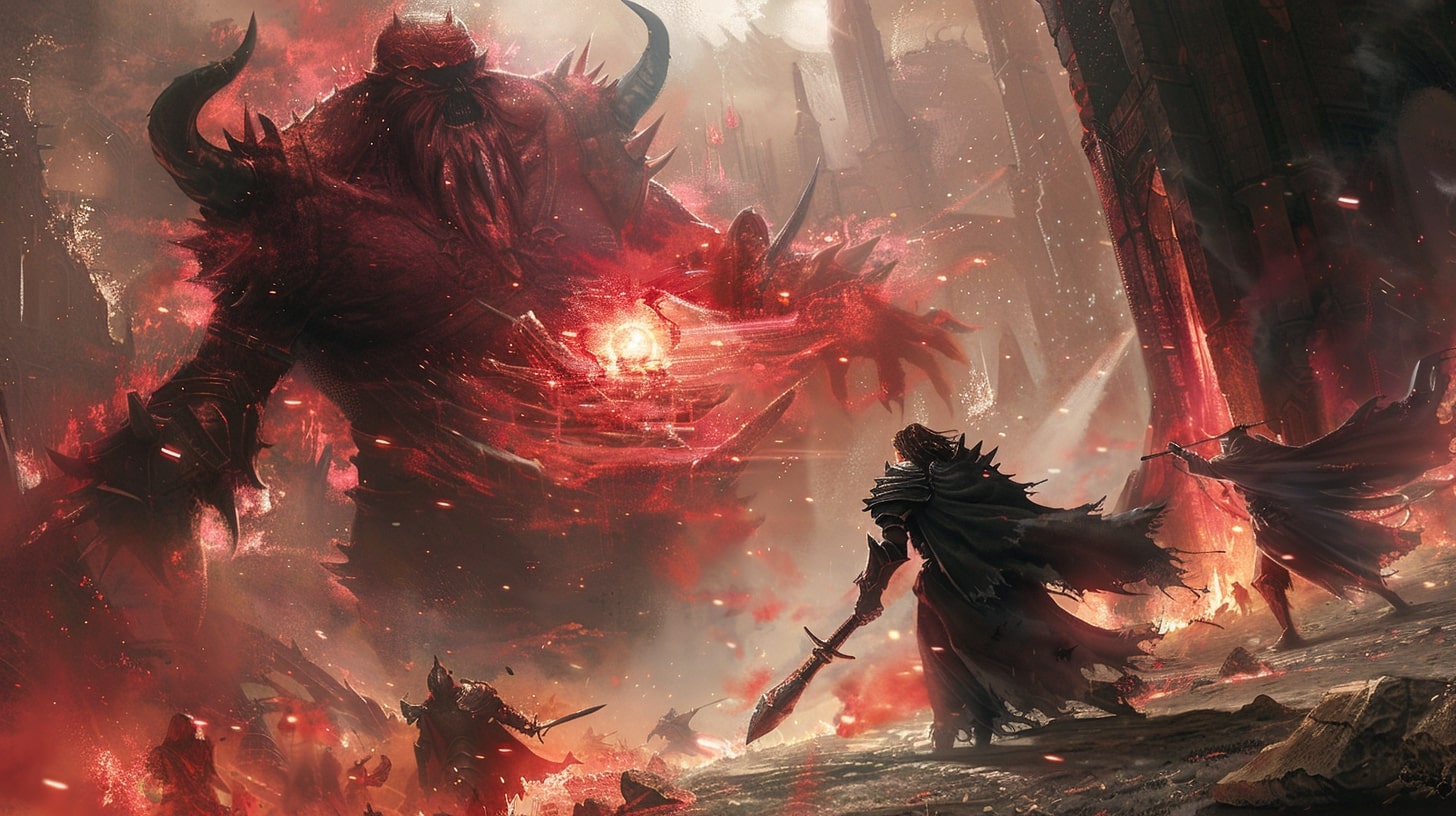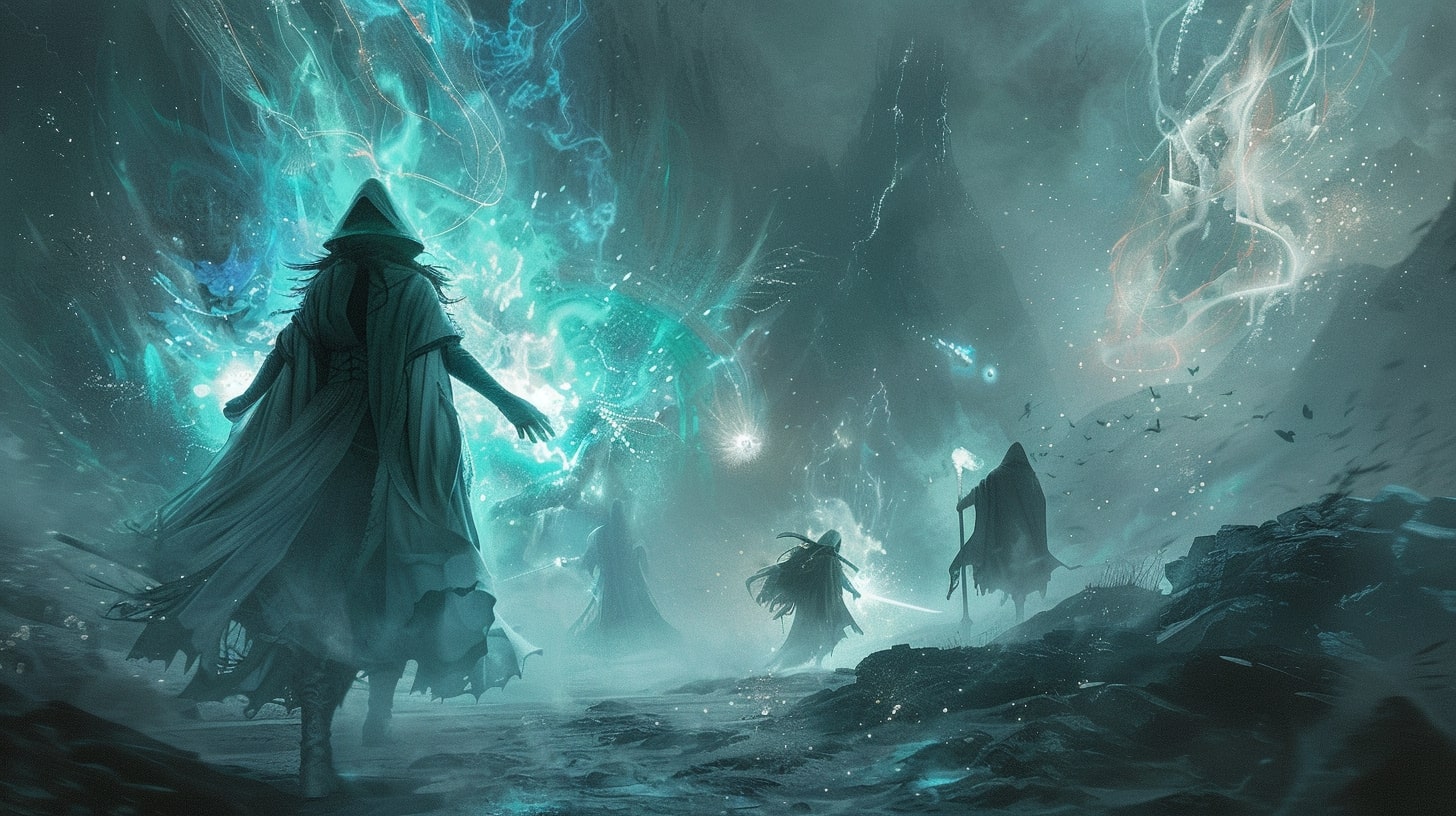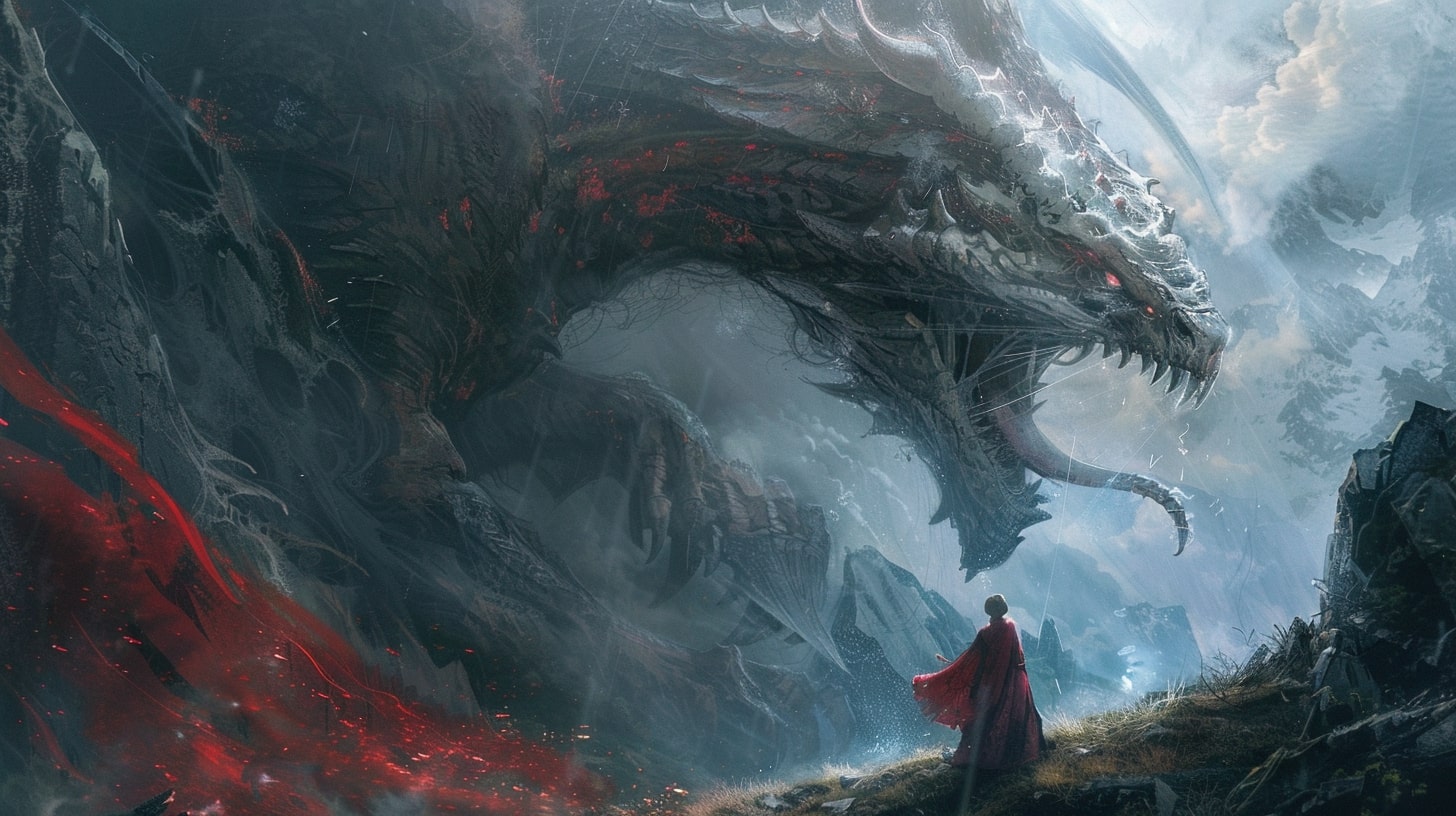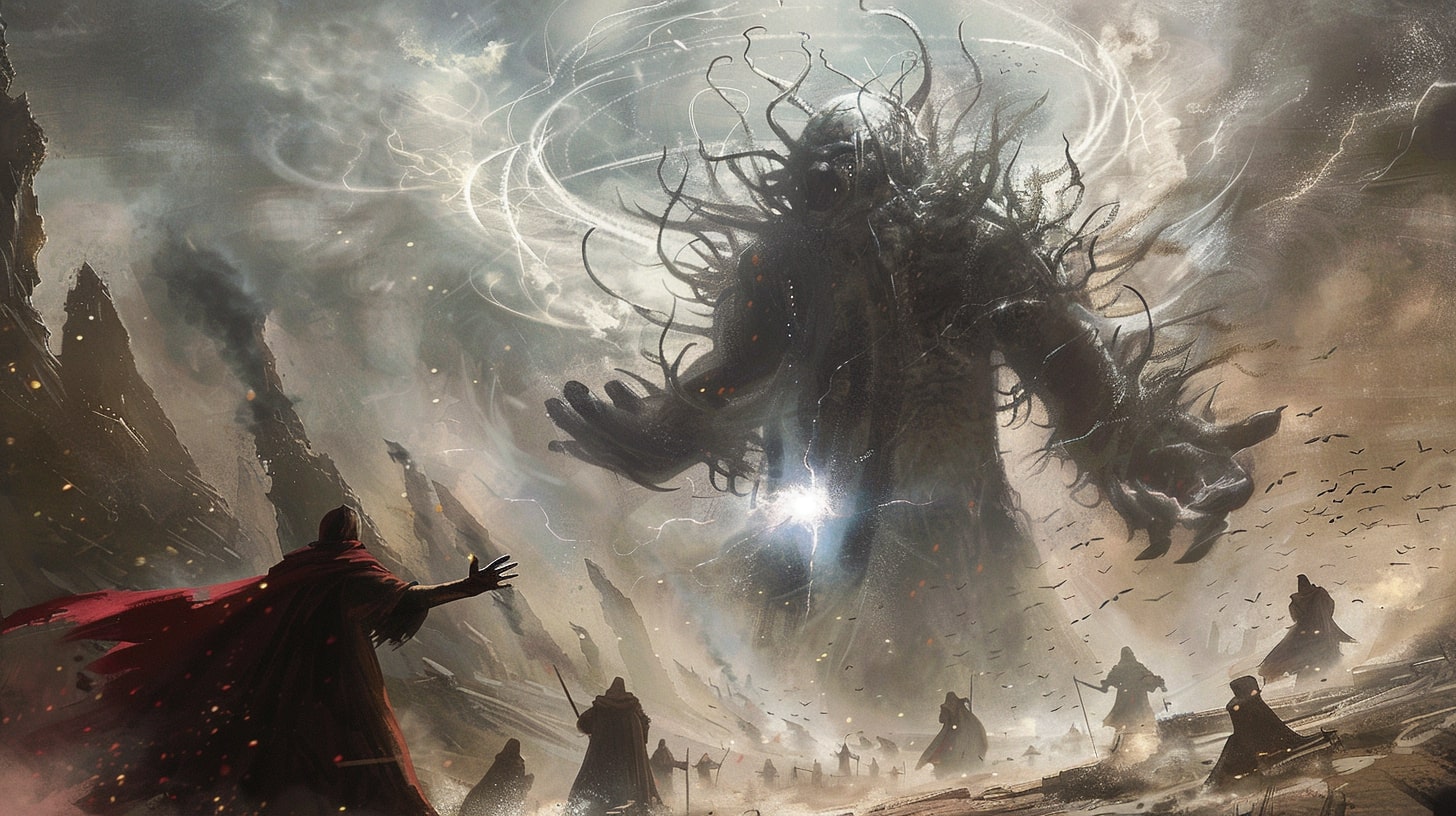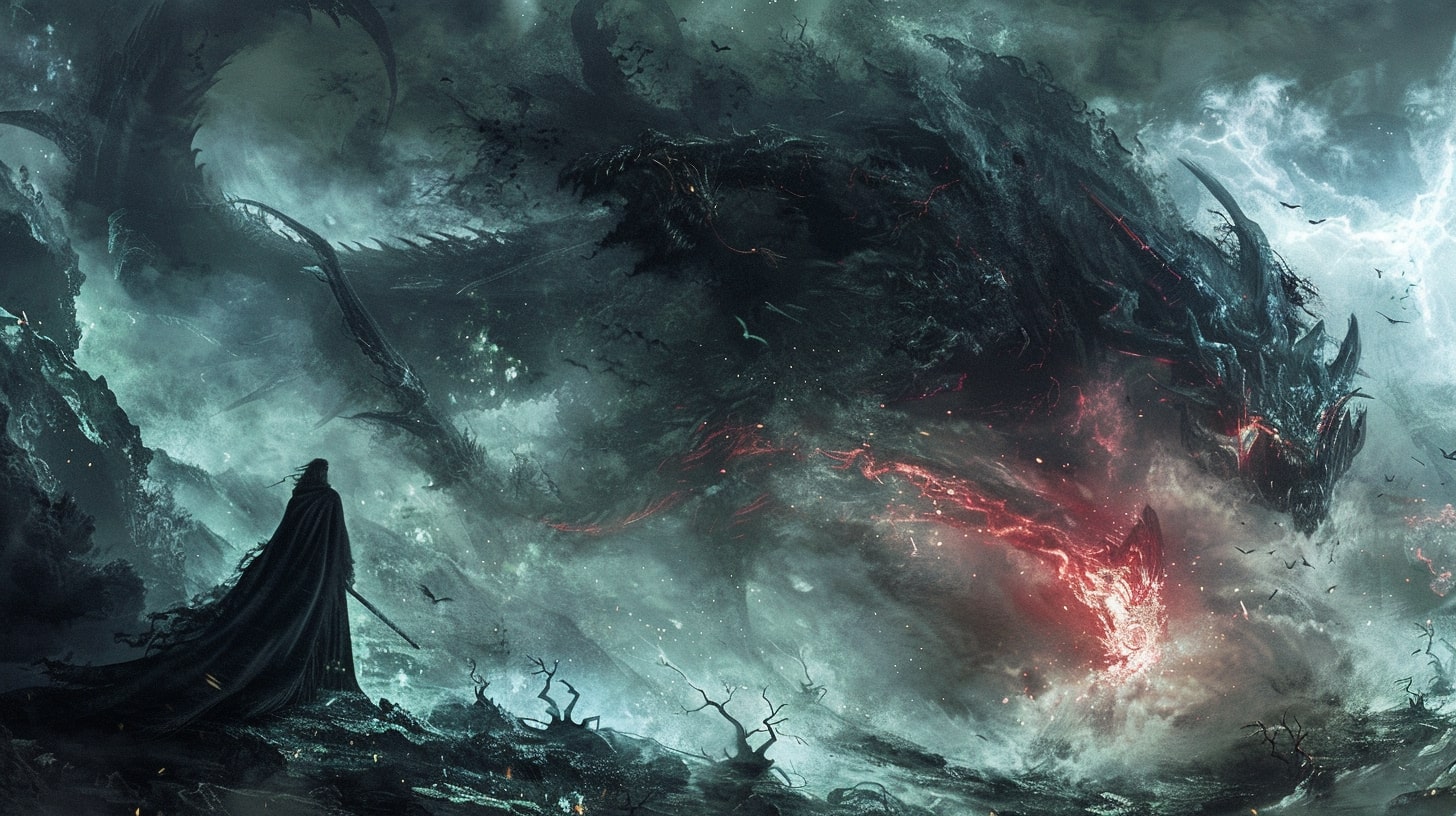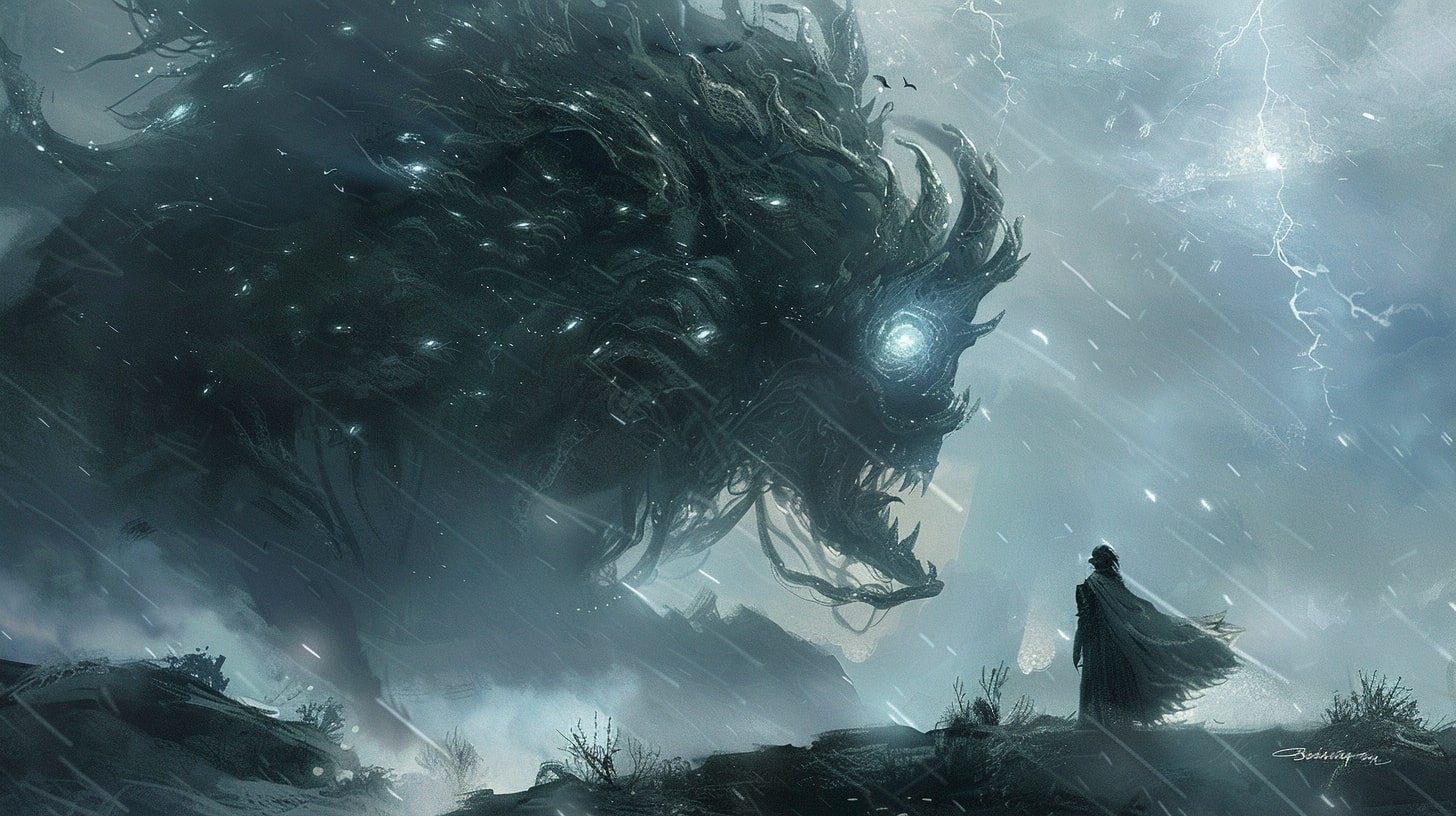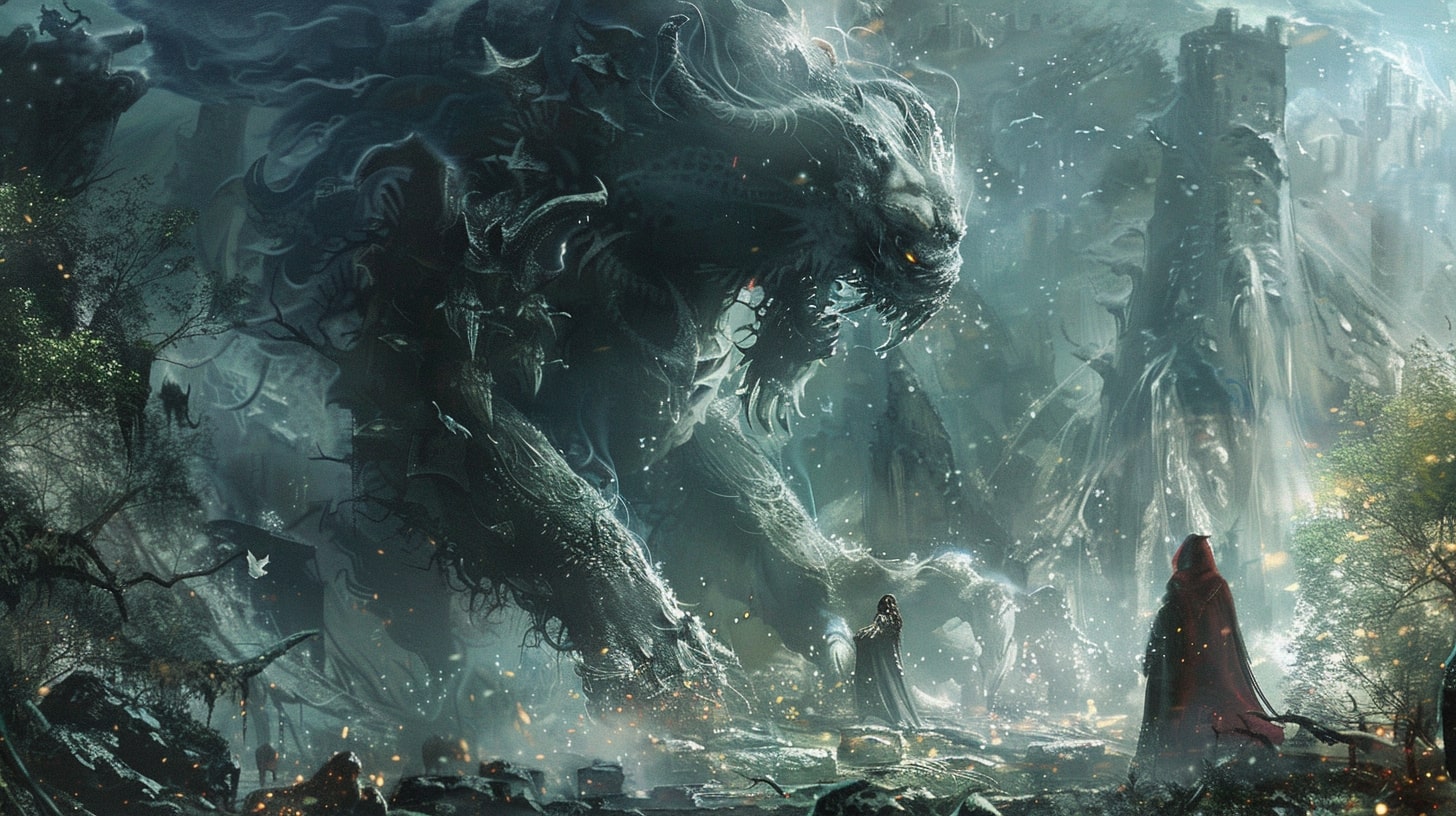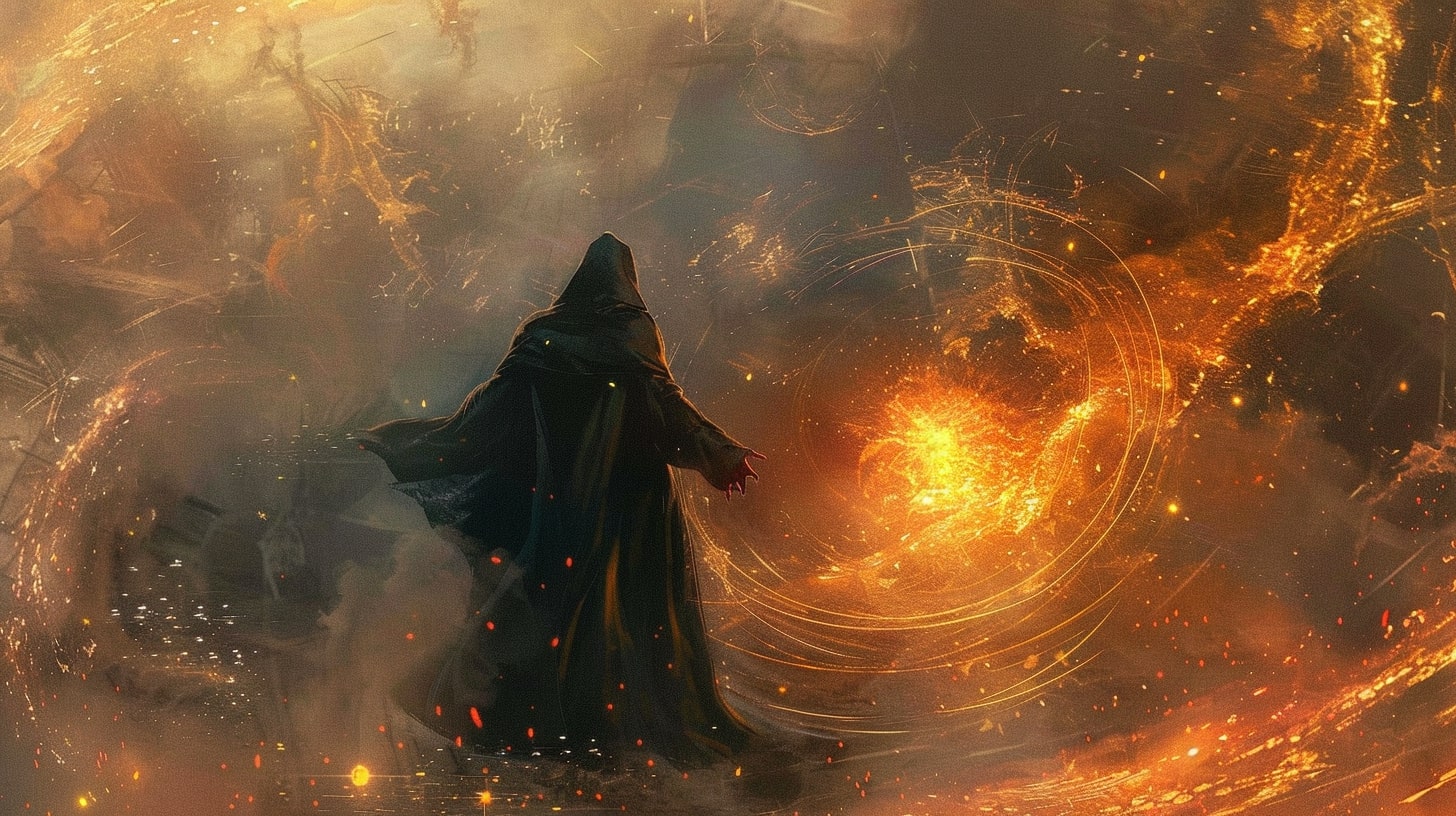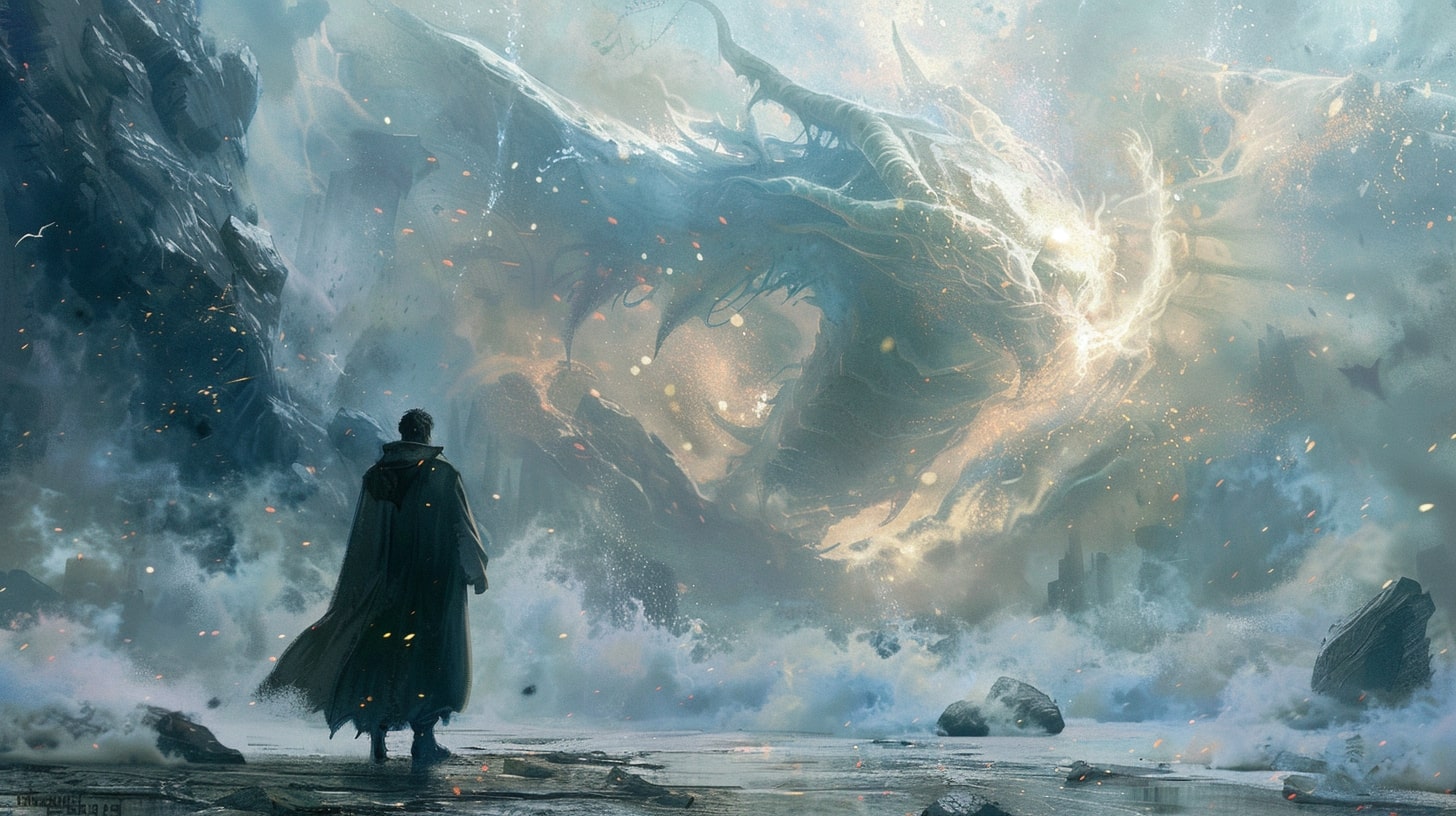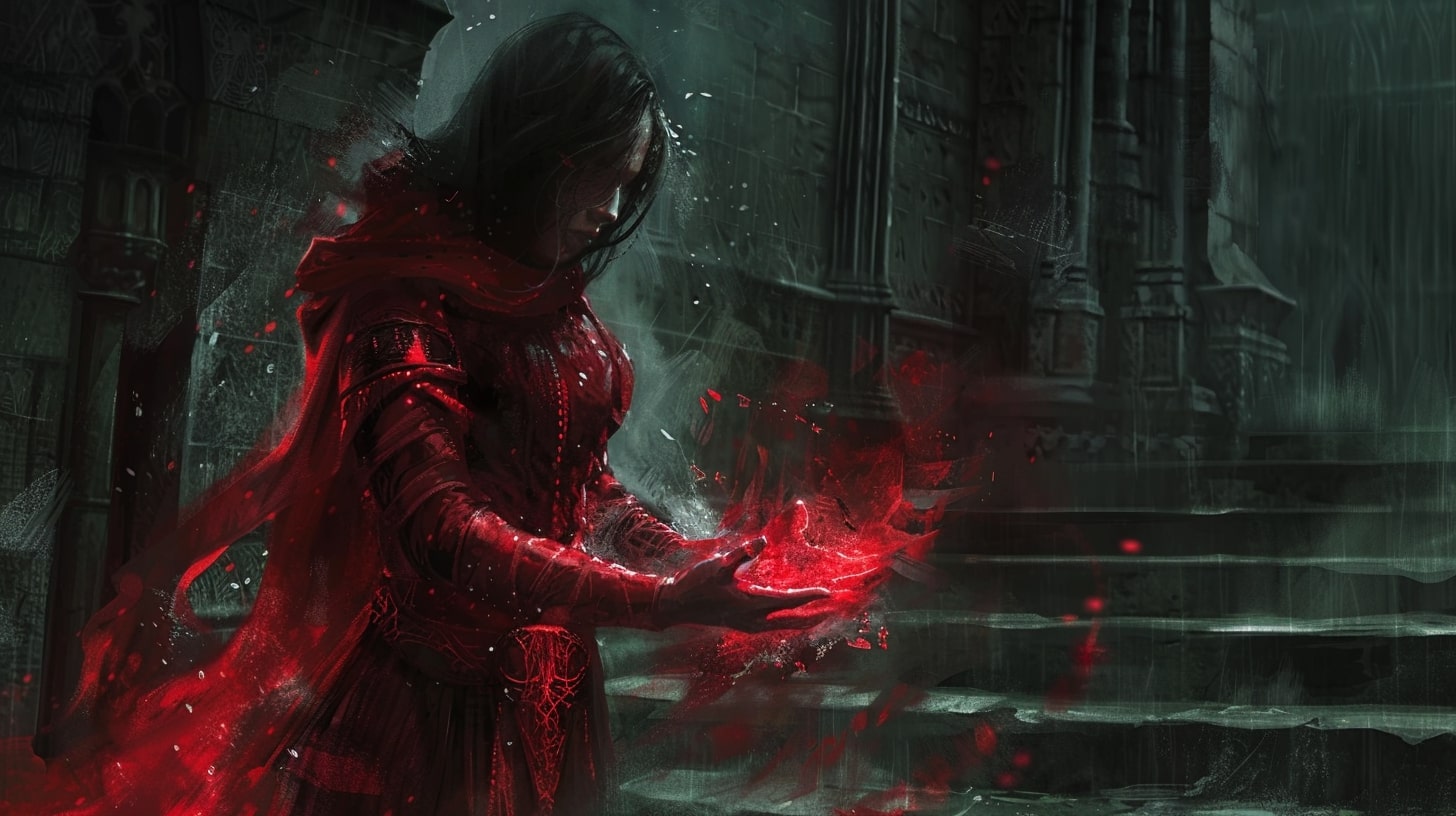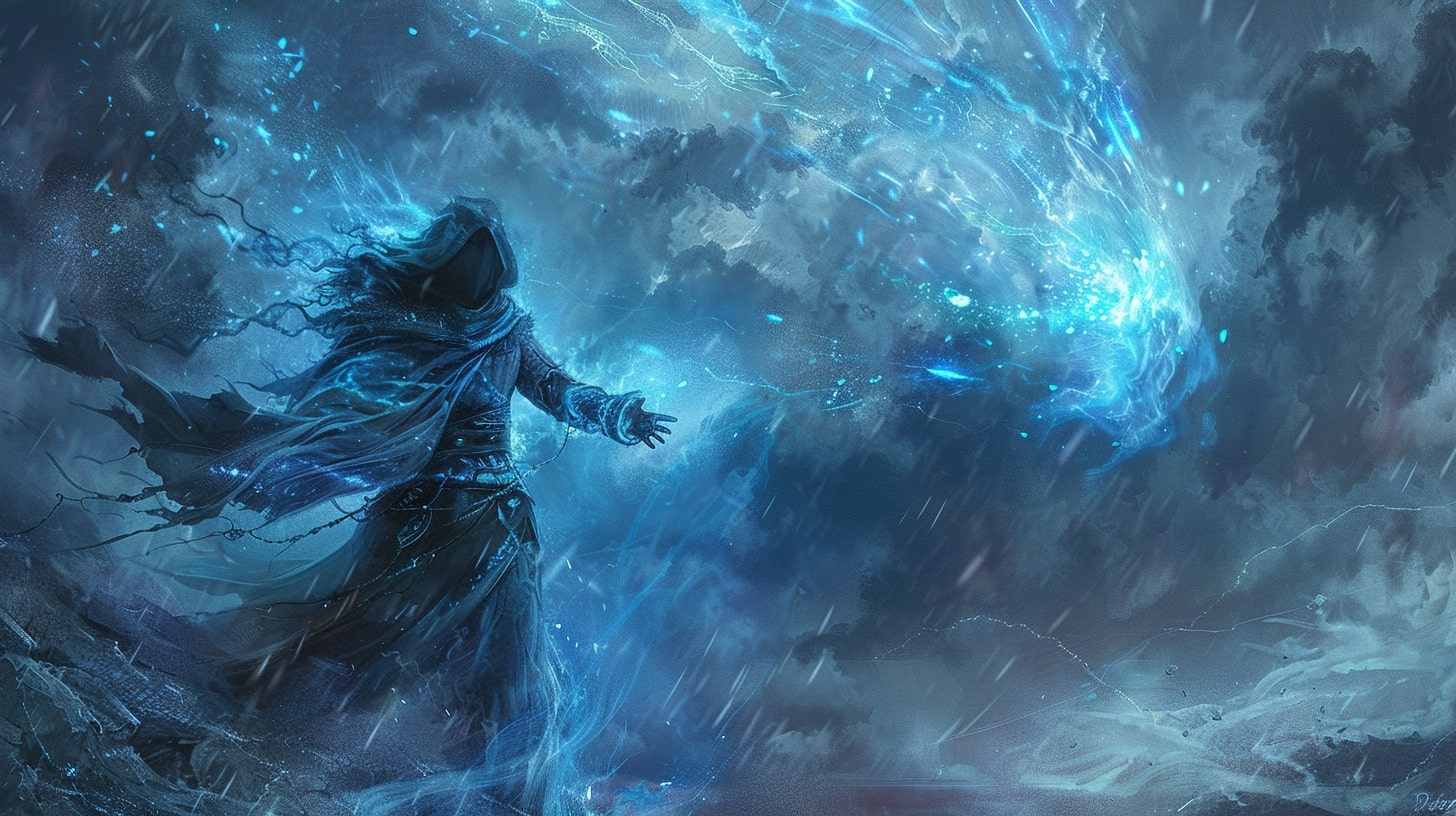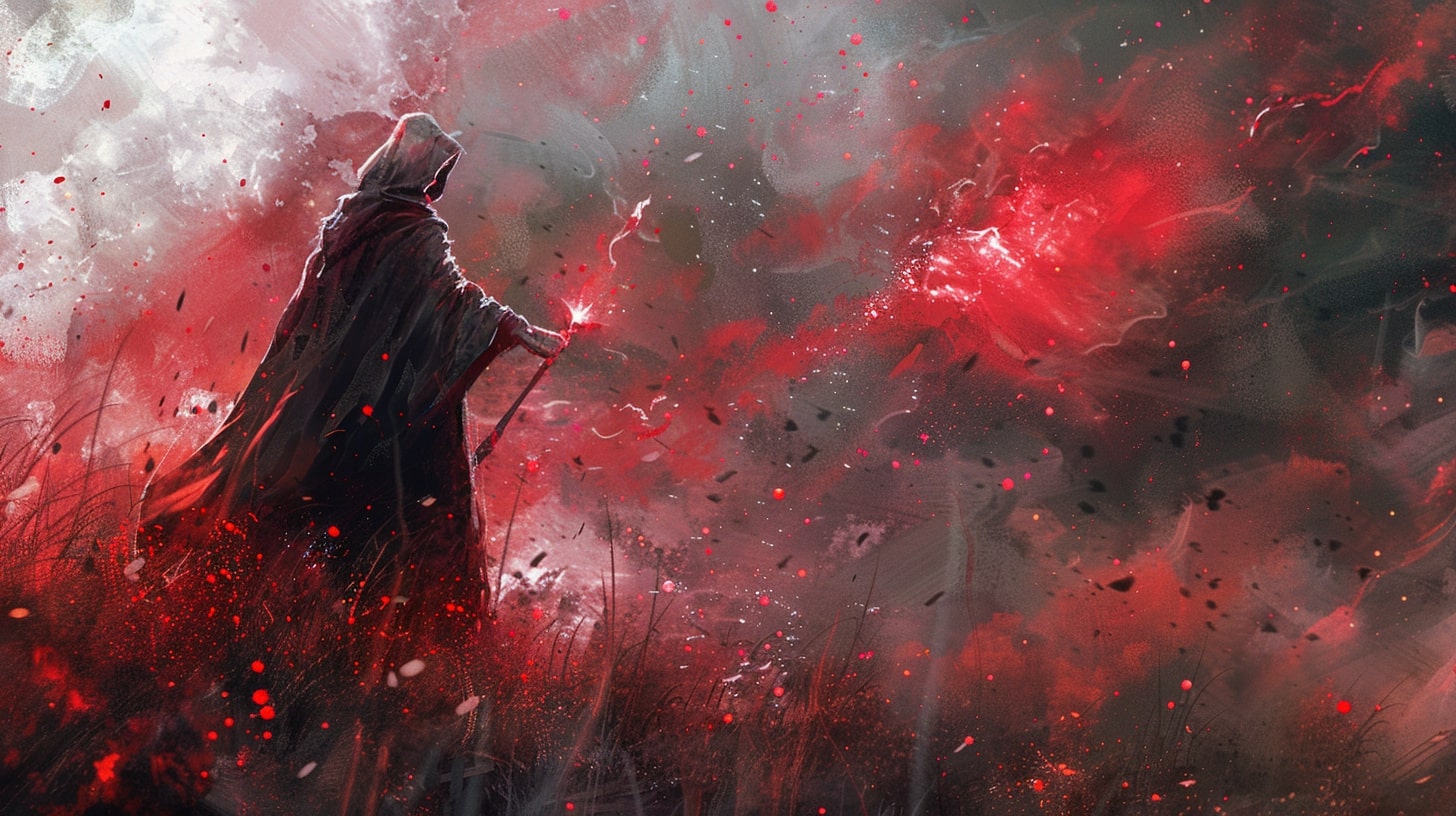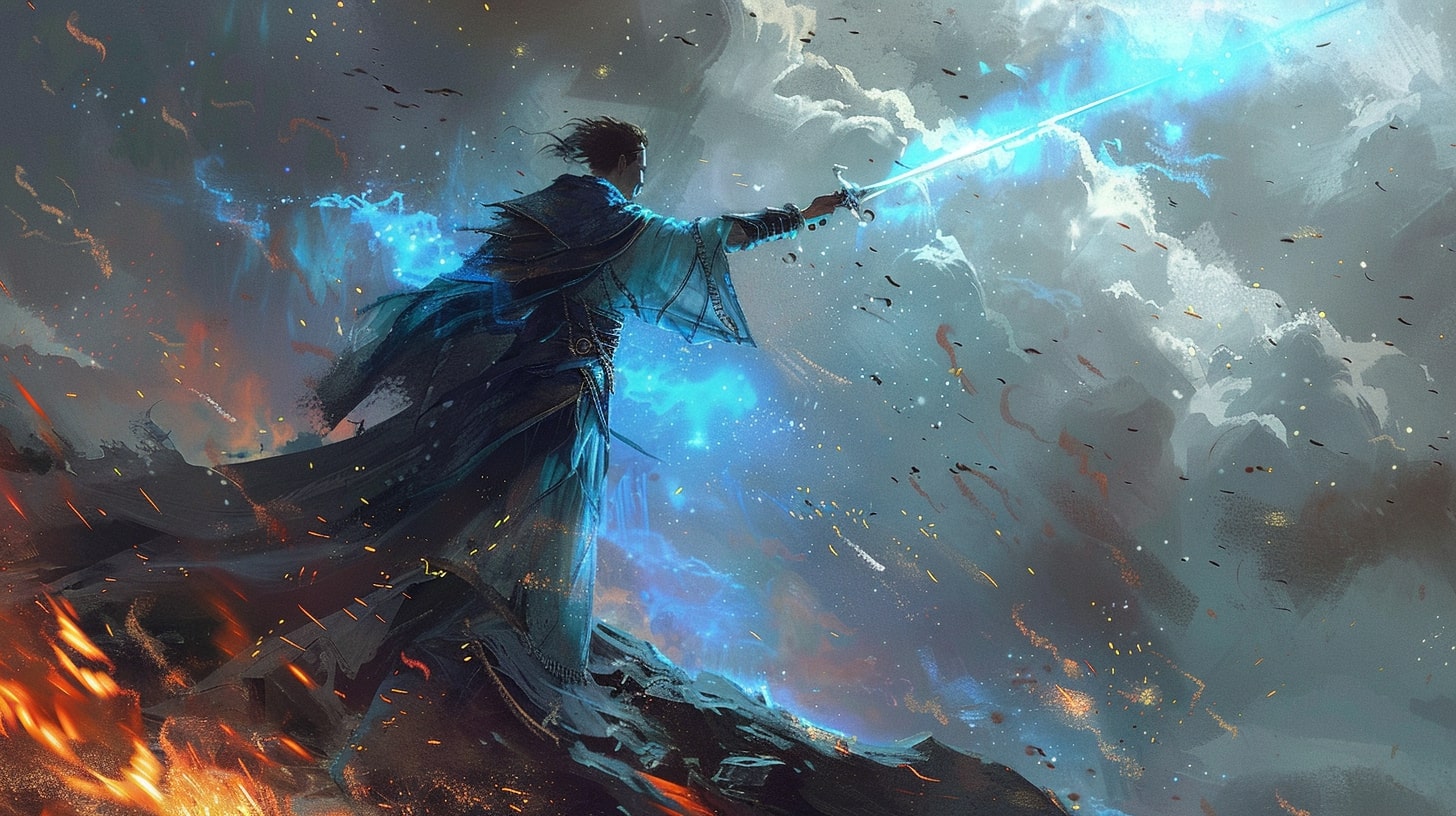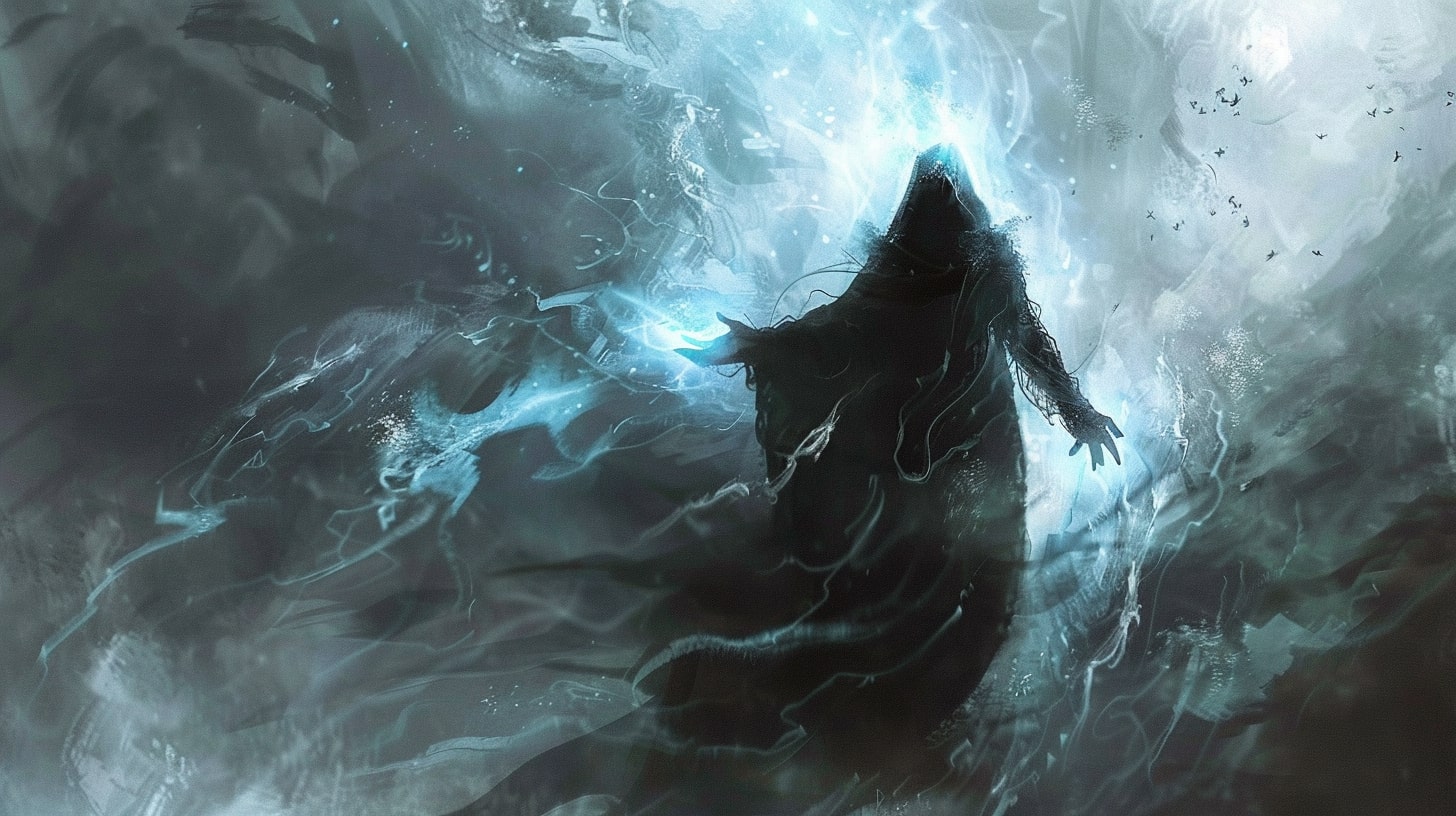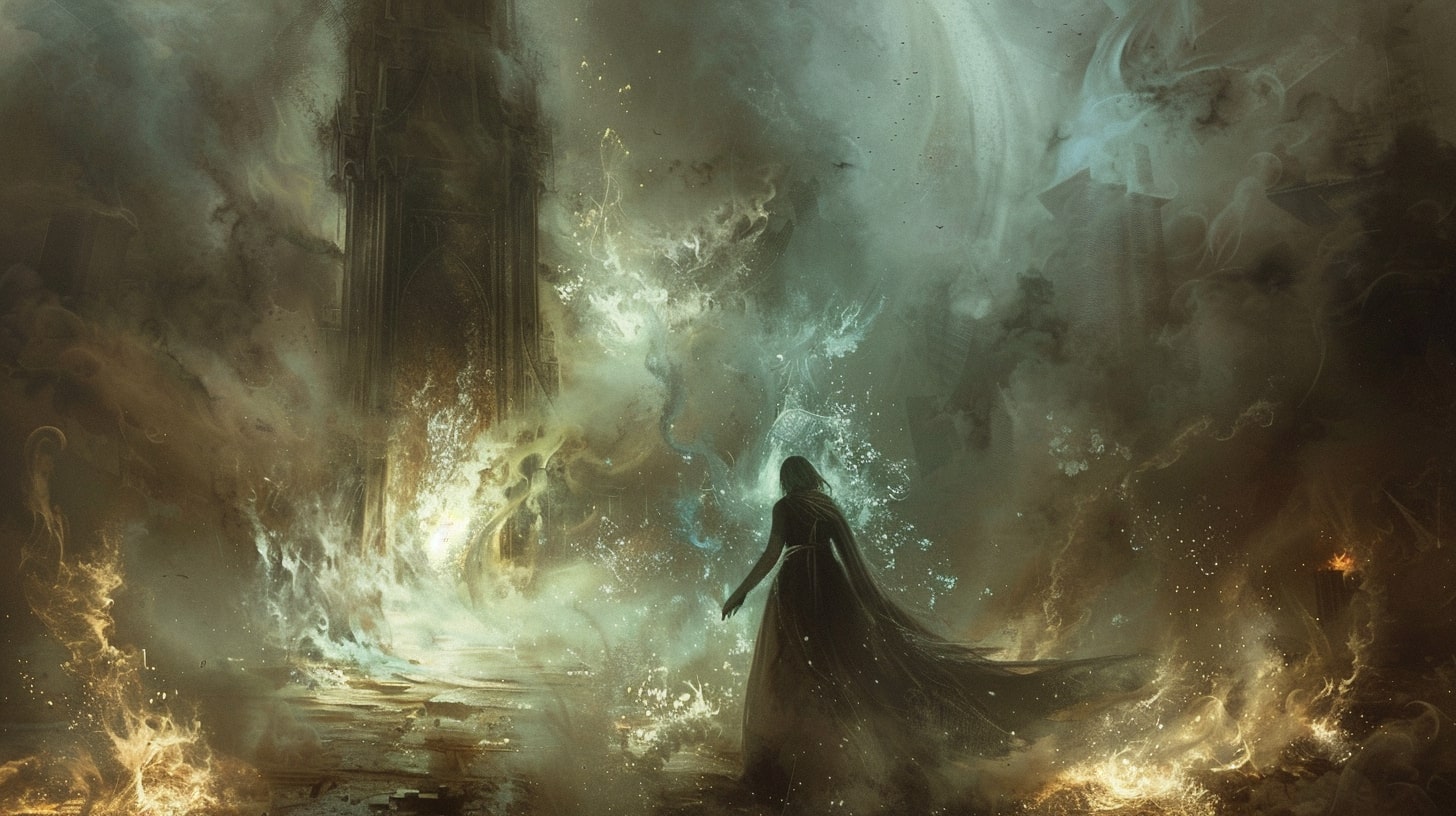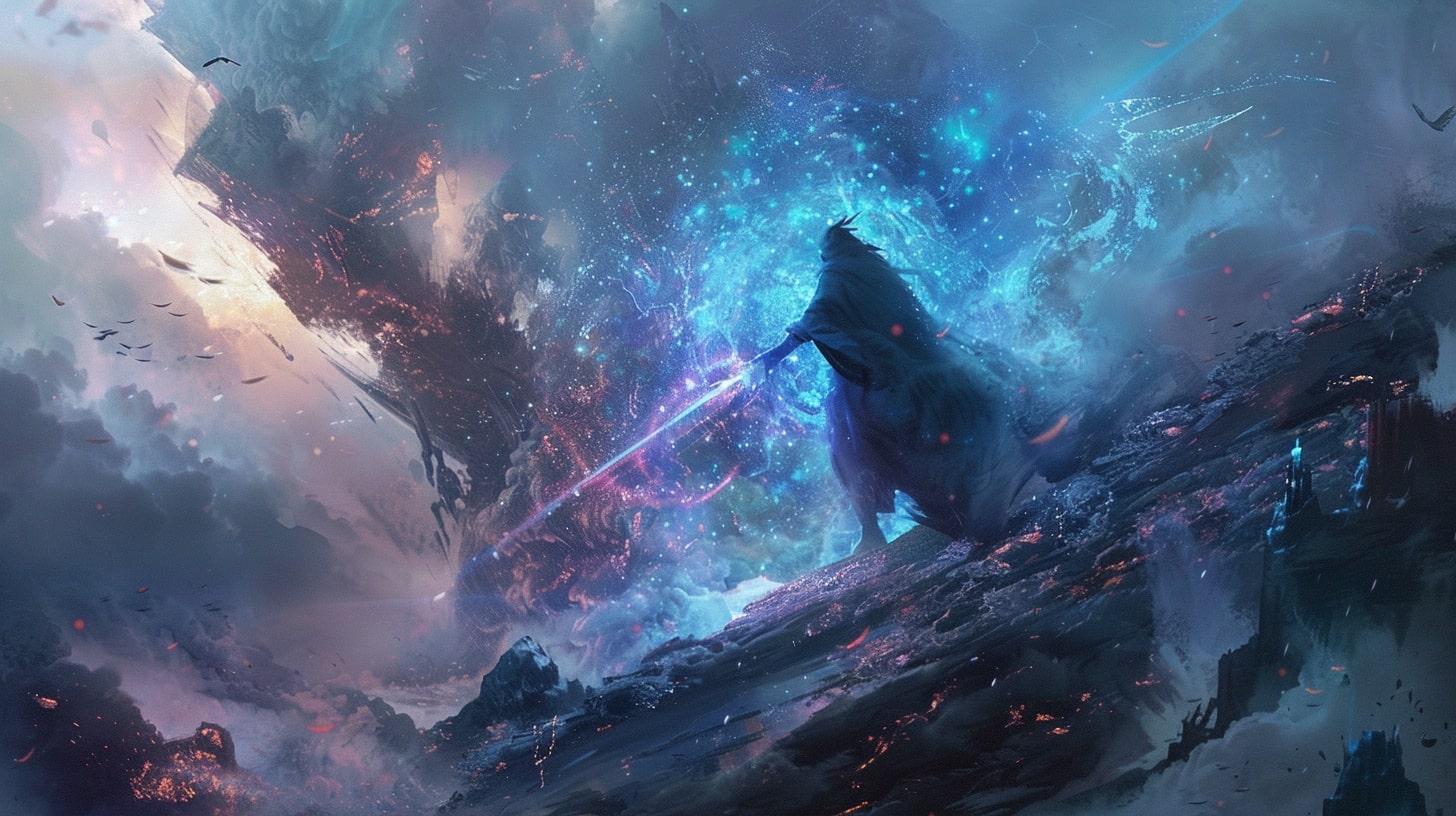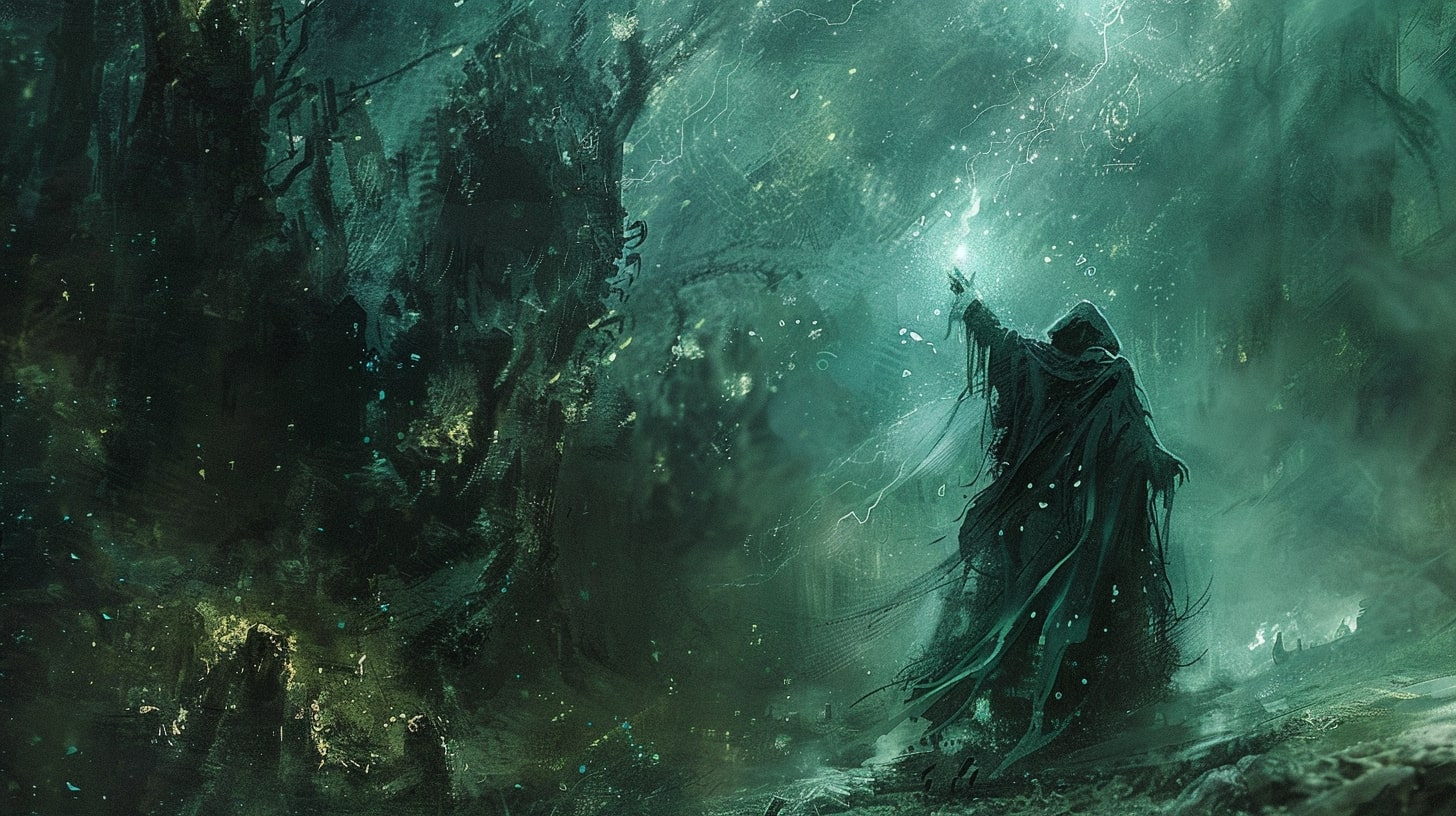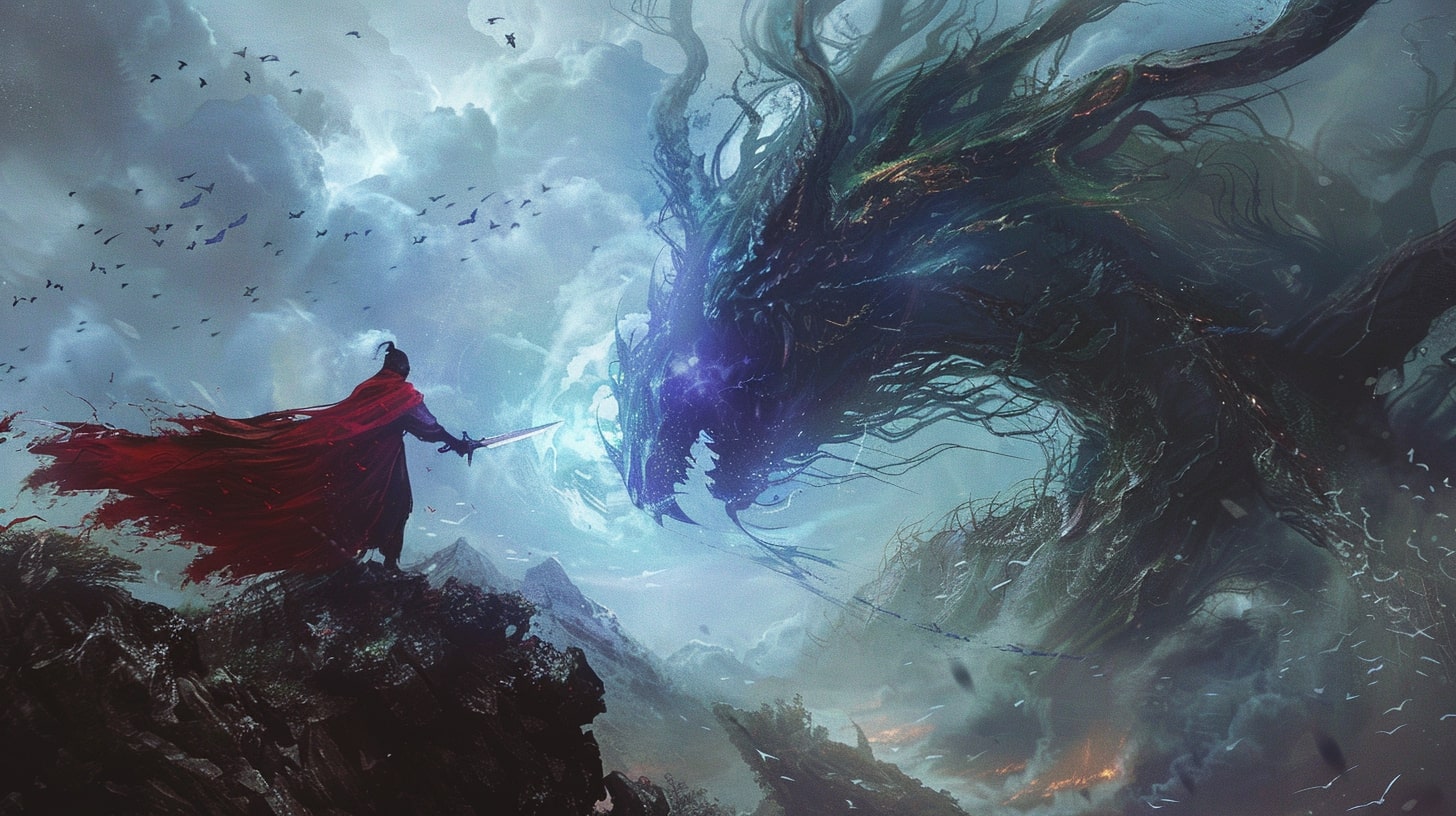Unlocking the Magic of Worldbuilding
In the realm of fantasy writing, creating a captivating magic system is an essential component of worldbuilding. A well-crafted magic system not only adds depth and intrigue to your story but also enhances the overall reading experience.
To achieve this, it's important to understand the importance of magic systems and the role of logic within them. If you can't figure out magic system logic then you have an illogical world.
There are no rules and nothing makes sense. That's not a world readers want to be involved in because they can't relate or understand.
So let's figure out the logic of your magic system so we can pull readers in closer.
The Importance of Magic Systems in Fantasy Writing
Magic systems play a vital role in the fantasy genre, offering a sense of wonder and escapism for both readers and writers. They introduce a new layer of possibilities and allow for extraordinary events and abilities to take place within the story.
A well-designed magic system can become a defining characteristic of your world, setting it apart from others and immersing readers in a realm where the impossible becomes possible.
Magic systems can shape the dynamics of your story, influencing the plot, character development, and conflicts that arise. They enable characters to wield supernatural powers, creating tension, and driving the narrative forward. By establishing clear rules and limitations for magic, you can create a sense of balance and challenge that adds depth and suspense to your storytelling.
For inspiration and ideas on developing your own magic system, check out our article on magic system ideas.
The Role of Logic in Magic Systems
While magic is inherently fantastical, incorporating logic into your magic system is crucial for maintaining internal consistency and believability within the world you've created. Logic helps establish rules and principles that guide how magic functions, ensuring that it operates within a coherent framework.
A logical magic system provides structure and stability, preventing it from becoming a mere plot device or deus ex machina. By defining the mechanics and limitations of magic, you establish a system that feels authentic and grounded, even within a world of fantasy. This helps readers suspend their disbelief and become fully immersed in your story.
When designing your magic system, consider the cause and effect relationships between magical abilities and their consequences. This will help you strike a balance between creativity and plausibility, allowing your magic to feel both exciting and believable. For guidance on striking this balance, take a look at our article on magic system balance.
By understanding the importance of magic systems and the role of logic within them, you can unleash your imagination and create a magical world that captivates readers.
So, dive into the realm of possibilities, explore various types of magic systems, and let your creativity soar. Your magic system will become an integral part of your storytelling and leave a lasting impression on your readers.

Magic System Logic: The Elements
To create a compelling magic system in your fantasy world, it's important to consider key elements that bring your magic to life. These elements include core principles and rules, source of magic and energy, and limitations and restrictions.
Core Principles and Rules
Every magic system operates on a set of principles and rules that govern its functioning. These principles define how magic works in your world and establish the boundaries within which it operates. By establishing clear rules, you provide structure to your magic system and ensure consistency throughout your story.
Consider questions such as:
- How is magic accessed or learned?
- Are there specific gestures, incantations, or rituals required to perform magic?
- What are the consequences of using magic?
By defining these core principles and rules, you create a framework that guides the usage and understanding of magic within your world.
Source of Magic and Energy
Magic requires a source of power or energy to manifest. This source can vary greatly depending on your world and the type of magic system you're developing. It could be drawn from the elements, channeled through mystical artifacts, or even derived from the characters' own life force.
Determining the source of magic in your world not only adds depth and richness to your storytelling, but it also helps establish the unique flavor and dynamics of your magic system. Explore different sources of magic and consider their implications on your world and its inhabitants.
Limitations and Restrictions
Magic, like any powerful force, should have limitations and restrictions to prevent it from becoming all-encompassing or too convenient for your characters. These limitations add tension, challenge, and conflict to your story, making it more engaging for readers.
Limitations can include:
- A limited amount of magical energy available to each user.
- The need for specific ingredients or conditions to perform certain spells.
- Negative consequences, such as physical or mental strain, associated with excessive use of magic.
By setting clear limitations and restrictions, you create a balance within your magic system and prevent it from becoming overwhelming or overpowered.
By carefully crafting the core principles and rules, determining the source of magic and energy, and establishing limitations and restrictions, you can develop a well-rounded and coherent magic system that enhances your storytelling. For more inspiration and ideas on magic systems, check out our article on magic system ideas.
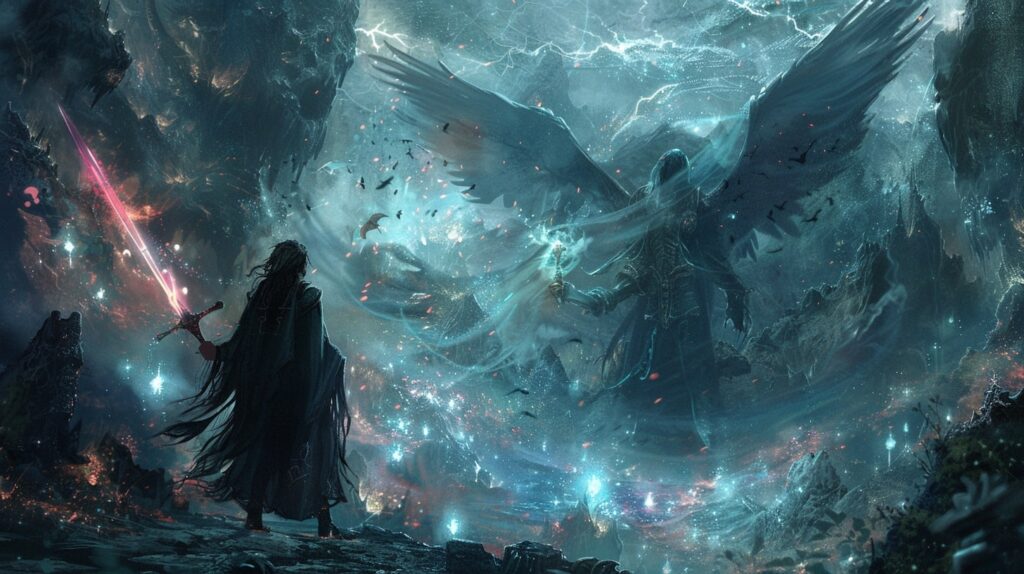
Establishing Internal Consistency
To create a believable and immersive magic system, it is crucial to establish internal consistency. This consistency ensures that the magic system aligns with the story's world, maintains logical application, and has consistent consequences. Let's explore these aspects further.
Consistency with the Story's World
A well-crafted magic system should be consistent with the world in which it exists. Consider the setting, culture, and history of your story. How does magic fit into this world? Does it have a long-standing tradition or is it a recent discovery?
By integrating the magic system seamlessly into the narrative, you can enhance the overall believability of your story. For more insights into worldbuilding with magic systems, check out our article on magic system worldbuilding.
Consistency in the Application of Magic
Consistency in the application of magic means that the rules and principles governing its use remain constant throughout the story. Define the mechanics and limitations of your magic system early on and adhere to them consistently.
This ensures that readers understand how magic works and can follow its progression in the story. Consider creating a set of magic system rules to guide the use of magic within your world.
Consistency in the Consequences of Magic
Magic should have consequences, both for the characters who wield it and the world in which they live. Establish consistent cause and effect relationships for magic in your story. How does the use of magic impact the user? Are there risks or side effects associated with certain spells or rituals?
Additionally, explore the broader consequences of magic on the world itself. Does the use of certain types of magic affect the environment or societal structures? By maintaining consistency in the consequences of magic, you create a more believable and immersive world.
By establishing internal consistency within your magic system, you create a logical framework that enhances the reader's immersion in your story. Remember to refer to our article on magic system development for additional guidance and tips. With a well-rounded and coherent magic system, you can truly unleash your imagination and captivate readers with the magic of your world.

Balancing Creativity and Plausibility
Creating a compelling and believable magic system requires finding the right balance between creativity and plausibility. By combining imagination with logical considerations, you can develop a magic system that feels authentic and engaging.
Here are three important aspects to keep in mind as you strike this balance: embracing imagination, considering cause and effect, and avoiding overpowered magic.
Embracing Imagination
When crafting your magic system, don't be afraid to let your imagination run wild. This is your opportunity to introduce unique and fantastical elements that make your world come alive.
From magic spells and rituals to different types of magic, let your creativity soar. Allow your magic system to reflect the themes, cultures, and conflicts of your story. For inspiration, explore different magic system ideas and types of magic systems to spark your imagination.
Considering Cause and Effect
While imagination is important, it's equally crucial to consider the cause and effect of your magic system. Think about the rules and mechanics that govern how magic works in your world. Every magical action should have consequences and limitations.
This ensures that your magic system is internally consistent and avoids becoming a convenient plot device. By establishing magic system rules and limitations, you can add depth and realism to your world. Check out our article on magic system rules and magic system limitations for more insights.
Avoiding Overpowered Magic
To maintain balance and prevent your magic system from becoming overwhelming, it's important to avoid overpowered magic. Overpowered magic refers to abilities that are too dominant or invincible, making conflicts and challenges trivial.
Ensuring that your magic system has limitations and weaknesses helps create tension and adds an element of risk. By doing so, you allow your characters to face obstacles and grow through their struggles. Strive for a magic system that is both awe-inspiring and balanced.
By finding the right balance between creativity and plausibility, your magic system can become a captivating and integral part of your storytelling. Remember to embrace imagination, consider cause and effect, and avoid overpowered magic.
As you develop your magic system, explore different magic system components and magic system mechanics to refine your ideas. Through this process, you will create a magic system that enhances your world and captivates your readers.
Building a Coherent Magic System
In the realm of fantasy writing, building a coherent magic system is essential for creating a captivating and believable world. A well-crafted magic system adds depth and intrigue to your story.
To achieve this, you need to focus on three key aspects: defining the purpose and function of magic, developing unique and engaging elements, and testing and refining the system.
Defining the Purpose and Function of Magic
Before diving into the specifics of your magic system, take a moment to consider the purpose and function of magic within your story. Ask yourself: What role does magic play in the world?
How does it impact the characters and the overall plot? By defining the purpose of magic, you can ensure that it serves a meaningful and integrated role in your narrative.
The function of magic can vary greatly from one story to another. It might be a powerful force used for combat and warfare, a tool for healing and restoration, or a means of communication with otherworldly beings. Understanding the purpose and function of magic will guide you in shaping its rules, limitations, and applications.
Developing Unique and Engaging Elements
To make your magic system stand out, it's important to create unique and engaging elements that differentiate it from others in the genre. Consider incorporating distinctive magical abilities, unconventional sources of magic, or intriguing rituals and spells. These elements will add depth and intrigue to your system, capturing the imagination of your readers.
To develop unique elements, draw inspiration from different sources such as mythology, history, and nature. Think about how cultural and historical influences can shape your magic system. You can also explore different types of magic systems, such as elemental magic or ritualistic magic, to spark your creativity. Our article on magic system ideas might provide you with some inspiration.
Testing and Refining the System
Once you have defined the purpose and developed the elements of your magic system, it's essential to test and refine it to ensure internal consistency and balance. Experiment with the rules, limitations, and applications of magic to see how they interact within your story's world. Consider seeking feedback from beta readers or fellow writers to gain fresh perspectives and identify any potential flaws or inconsistencies.
During the testing phase, pay attention to the balance of your magic system. Avoid creating an overpowered system that undermines tension or conflict in your story. Strive for a balance that allows both challenges and triumphs for your characters.
Remember, building a coherent magic system is an iterative process. Be open to making adjustments and refinements along the way to create a system that is engaging, consistent, and enhances your storytelling.
By defining the purpose and function of magic, developing unique and engaging elements, and testing and refining the system, you can create a coherent magic system that adds depth and wonder to your fantasy world. So, embrace your imagination and embark on the journey of crafting a magic system that will captivate readers and transport them to realms beyond their wildest dreams.
Tips for Creating a Compelling Magic System
Creating a captivating and well-crafted magic system is an essential part of fantasy writing. To help you in this endeavor, here are some tips to consider when developing your own magic system.
Drawing Inspiration from Different Sources
To make your magic system unique and engaging, draw inspiration from various sources. Explore different mythologies, folklore, and even real-world historical events to find inspiration for the mechanics, origins, and elements of your magic system. By incorporating diverse influences, you can create a magic system that feels rich and authentic.
Consider researching and reading about different types of magic systems to gather ideas. Websites like Obsidian Tavern offer a wealth of resources and inspiration, such as magic system ideas, elemental magic system, and unique magic systems.
Incorporating Cultural and Historical Influences
Infusing your magic system with cultural and historical influences adds depth and richness to your world. Consider incorporating elements from different cultures, such as their beliefs, rituals, and symbols, to create a magic system that feels grounded and believable.
Researching cultural practices and historical events can provide valuable insights into how magic might be integrated into a society or how it may have evolved over time. This inclusion of cultural and historical influences adds layers of authenticity and can create a more immersive reading experience.
Encouraging Reader Engagement and Exploration
A compelling magic system should stimulate reader engagement and invite exploration. Provide enough detail about the rules, limitations, and possibilities of your magic system to captivate readers' imaginations. However, also leave room for mystery and discovery, allowing readers to uncover new aspects of the magic system as the story progresses.
Encourage readers to speculate, theorize, and engage with your magic system by leaving breadcrumbs of information throughout your story. This can lead to a deeper connection between readers and your world, as they become invested in unraveling the intricacies of the magic system.
By drawing inspiration from different sources, incorporating cultural and historical influences, and encouraging reader engagement and exploration, you can create a compelling magic system that adds depth and wonder to your fantasy world. Remember to stay true to the logic and internal consistency of your magic system while embracing your own creative flair. Happy worldbuilding!

